Types of Acne – Everything You Need to know
Acne is mainly a skin condition that arises when your hair follicles start becoming clogged with oil as well as dead skin cells. You need to know that acne causes blackheads, whiteheads, or pimples. Acne is very common among teenagers, but it also affects people of all ages. However, it is easy to deal with acne types on the face by using effective acne treatments. Depending on the severity of the acne, it can lead to emotional distress along with a scar on your skin. To lower your risk for such problems, make sure you start the treatment as early as possible. Remember, acne is an inflammatory and chronic skin condition that causes spots and pimples. You can find pimples and spots usually on the face, back, shoulders, neck, chest, and upper arms. This skin problem occurs during puberty, when your sebaceous glands activate. Although acne can occur at any age, you must know that it is not a dangerous problem, but it might leave scars on your skin. Acne primarily affects teenagers and young adults who are going through hormonal changes. But there are several people who continue to struggle with this skin problem in their 20s, 30s, and sometimes beyond as well. But some people even develop acne as adults for the first time. Depending on the severity of your condition, the signs of acne might vary. To get the right treatment, it is necessary to recognize which type of acne you are suffering from. Acne can be inflammatory or non-inflammatory. When it comes to acne, there are many types: This type of acne includes whiteheads as well as blackheads. Non-inflammatory acne does not cause any type of swelling. They even respond well to over-the-counter (OTC) medications. To treat non-inflammatory acne effectively, doctors usually recommend salicylic acid. It helps exfoliate your skin and eliminate dead skin cells that might cause blackheads and whiteheads. Your doctor might also recommend cleanser, toner, and moisturizer as per the severity of your acne. It’s crucial for you to be aware that blackheads develop when sebum and dead skin cells block a pore. The top of the pore remains open even when the rest of it is blocked. This further leads to a black color on the surface. However, blackheads can be easily treated with the help of over-the-counter medicines. Whiteheads are usually a mild form of acne and are small, round, and white bumps present on the surface of your skin. This type of acne occurs only when a pore becomes blocked with sebum, debris, and dead skin cells. When this blocked pore is masked with a thin layer of skin, it starts appearing white on its surface. You must know that whiteheads normally appear on your shoulders, chest, face, neck, and back. There are several factors that lead to whiteheads, like genetics, cleansing routines, and lifestyle habits. One of the major causes of whiteheads is hormonal changes and instabilities in hormone levels, which might lead to acne breakouts. Keep one thing in mind: whiteheads are a sign that your body is struggling to push out an infection. The small bump of an infected pore shows that your body is trying hard to push out an infection. You need to know that the small bump of an infected pore shows your skin is making efforts to push out bacteria. The problem of inflammatory acne arises when bacteria infect blocked or closed pores. This further causes your immune system to react to combat the bacteria. As a result, it also makes you suffer from inflammation and even serious types of blemishes, such as cysts. It might be irritating to live with inflammatory acne. However, you can find several medications that help decrease the chance or severity of inflammatory acne. Acne papules are mainly inflamed pimples and arise in those who suffer from mild to severe acne. When it comes to papule acne, there can be a variety of causes, like a combination of genetic and environmental factors. This form of acne is a little stressful because it is highly visible and causes skin irritation. But don’t worry; nowadays, you can find different methods to decrease the severity of acne papules. Pustules are a kind of pimple that consists of yellowish pus. This type of acne is larger when compared to whiteheads as well as blackheads. Pustules of acne appear either as red bumps with a white center or as white bumps that are hard and sore to the touch. But there are many cases in which the skin around the pustules gets red or inflamed. This type of acne can appear anywhere but is common in areas of your body that become oily quickly, like the face and neck. It also occurs in areas that get sweaty, such as the chest, armpits, and pubic areas. Nodular acne is a serious type of inflammatory acne that leads to large and painful breakouts known as acne nodules. It is vital to know that acne nodules are large in size when compared to typical pimples and affect the deeper layers of your skin. This type of acne usually appears on your face, back, and even other areas of your body. In young men, nodular acne is common. On the other hand, teen boys and young adult males get acne nodules on their faces and the body as well. Adult women might experience this type of acne on their neck, chin, and jawline. When suffering from nodular acne, you must immediately look for an experienced dermatologist. Who can help you decrease the chances of scarring, which is common? Cystic acne is considered the most severe type of acne because it happens when cysts form deep below your skin. This happens due to the combination of bacteria, oil, and dry skin that gets jammed in the pores. Though anyone can suffer from this type of acne, people with oily skin have a higher chance of developing cystic acne. It is even more common in women, older adults, and teens who have hormonal imbalances. With age, cystic acne might improve. But the stubborn and aching bumps do not go away on their own. So, if you are suffering from cystic acne, then it is always better to consult a dermatologist on time. The doctor will help clear your skin by prescribing the right medicine. Acne is present in several forms, from small blemishes to noticeable cysts. Apart from inflammatory and non-inflammatory acne, there are also some other common acne types you must know. Acne vulgaris is mainly the result of the development of papules, comedones, nodules, pustules, and cysts. This is the result of blockage and inflammation of pilosebaceous units. This type of acne generally happens on the face as well as the upper trunk. It affects adolescents and requires a quick diagnosis from a doctor. The treatment of acne vulgaris depends on the seriousness of the acne and involves a variety of topical medications. The medicines directed by the doctor for this acne type help in reducing sebum production, inflammation, comedown formation, and bacterial counts. Acne breakouts range from mild or moderate to serious. When you suffer from mild acne. If you have mild acne, you might occasionally suffer from a few blackheads or whiteheads. Mild acne will not cover a large part of your face, chest, shoulders, back, or upper arms. The reason behind this type of acne is complex. But sometimes contributing factors might be diet, genetics, stress, and hormonal changes. However, it is easy to treat mild acne with the help of over-the-counter treatments. No matter what your age or skin type, you can suffer from mild acne. If you have 20 to 100 whiteheads or blackheads, 15 to 50 inflamed bumps, or 30 to 125 lesions, then your acne is moderate. In order to treat moderate acne effectively, dermatologists commonly suggest prescription medicine. The medication might take several weeks to show its results. You will notice the improvements and also feel that the acne is getting worse before it is better. Acne conglobata is considered an uncommon and acute form of inflammatory acne. This type of acne often causes large inflammatory pimples, deep nodules, and papules. You need to understand that nodules grow very large, in a dome shape. When you suffer from acne conglobata, deep breakouts start growing and spreading under the surface of your skin. Gradually, the breakouts start joining with each other and make you suffer from deep wounds or sores. When it comes to acne, there are different types and multiple causes as well, like hormonal changes, medicines, and so on. Acne mechanica is one of the types of acne caused by regular friction or pressure against your skin. You need to know that this type of acne breakout usually happens when the skin is rubbed, stretched, or squeezed. Acne mechanics can also be the result of your pre-existing acne problem. Sometimes, it also happens on its own without any occurrence of a primary outbreak. When compared to acne vulgaris, acne mechanica might make you suffer from inflammatory skin lesions, including papules, pustules, and nodules. Remember, acne mechanica can occur anywhere on your body. Where the skin is normally exposed to pressure or friction, like the arms, face, legs, neck, buttocks, and torso. This type of acne also develops when your skin is constantly exposed to friction or pressure, like when wearing particular clothing or sitting in the same position for a long time. Depending on the severity of the acne, your doctor will recommend medications. Nodulocystic acne is a severe form of acne that generally affects your face as well as your upper trunk. Nodules and cysts that frequently heal with scarring serve as a telltale sign of it. Remember, this acne type leads to deep problems within your skin and is even considered a serious form of acne. When compared to average pimples, a nodulocystic breakout is large and even deeper. The acne breakout is painful and sometimes leaves scarring that requires medical attention. You must know that OTC acne products often don’t work well for nodular acne. Widely available OTC ingredients like benzoyl peroxide and salicylic acid help remove additional sebum and dead skin cells from the surface. This further clears a blocked pore present at the surface of your skin, which ensures quick healing. It also improves the condition of nodules present deep under your skin. It is a severe type of acne that causes scarring, so it is better to start treating it as soon as possible. Topical prescription treatments such as retinoids and antibiotics are a perfect start. When it comes to acne treatment, you need to be patient. There are some treatments that start working immediately, while others take a few months to show widespread improvement. If you are facing the problem of acne, then use acne products carefully because some products make your skin dry. Using the wrong products can even cause pores to create more sebum, increasing acne problems. There are also several other conditions that look similar to acne. It is necessary for you to consult the doctor before using any medicines or products. Thus, if you want to treat your acne problems in a short time, then consult a well-known dermatologist. References: Acne is classified into four grades: Nodules and cysts make up the most severe form of acne. Treating these requires professional help from a dermatologist to avoid scarring. Resist the urge to pop or pick at them! Pimples are a symptom of a condition, while acne is the condition itself. Acne is a broader term encompassing various skin issues like whiteheads, blackheads, and pimples. Acne-prone skin tends to be oily. However, avoid over-drying your skin with harsh treatments, as dryness can lead to irritation and potentially more acne. Acne can persist into the early 20s, and some older adults may still deal with it. It varies from person to person. Surprisingly, some adults continue battling acne well into their 30s, 40s, and even 50s. It’s not just a teen thing! Acne occurs when hair follicles get clogged with oil and dead skin cells. It’s common among teenagers but can affect people of all ages. Cystic acne takes the crown for the most severe form. It involves deep, painful blemishes (cysts) anywhere on the face or body. Nodular acne is also intense, featuring large, hard, and deep nodules. Hormonal acne resembles regular acne but tends to produce deeper nodules and cysts that persist for longer periods.Overview
Short Summary
Who does acne affect?
Causes of acne
Acne Types
Noninflammatory acne
1. Blackheads (open comedones)
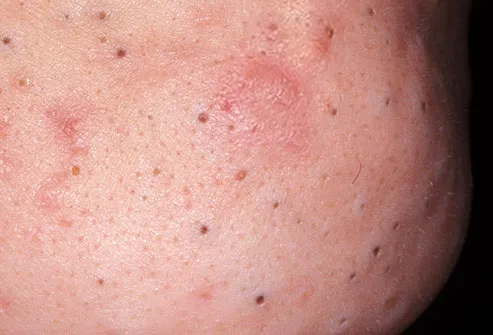
2. Whiteheads (closed comedones)
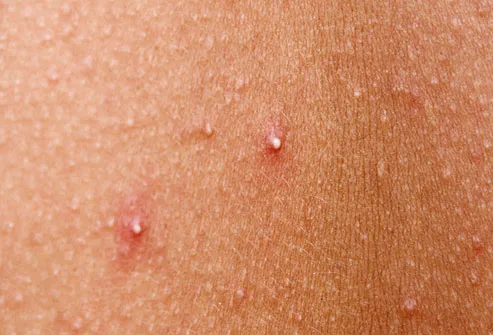
Inflammatory acne
1. Papules
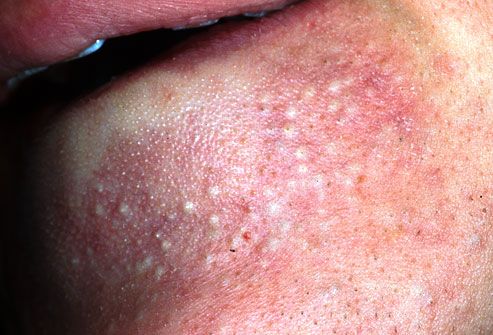
2. Pustules
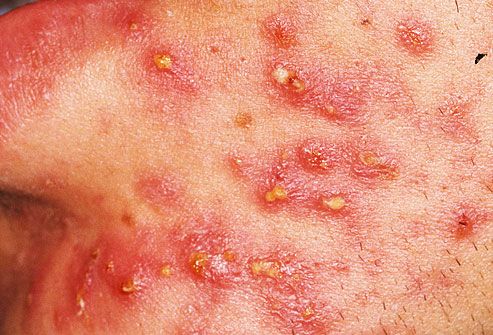
3. Nodules
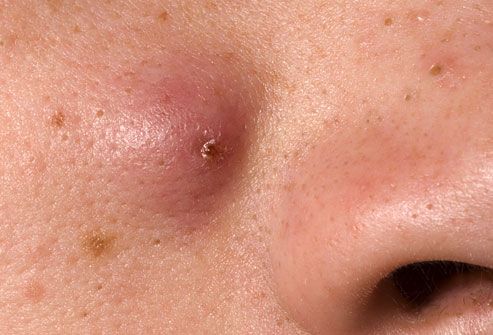
4. Cyst acne
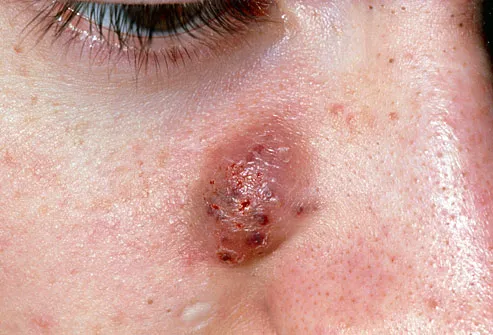
Other Common Acne Types
1. Acne Vulgaris
2. Mild Acne
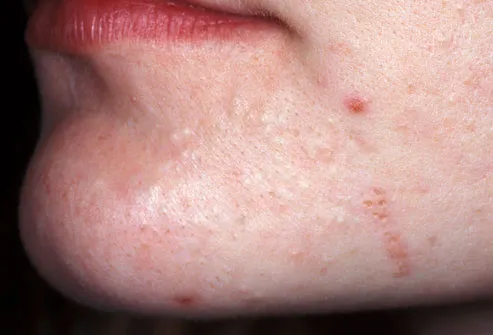
3. Moderate Acne
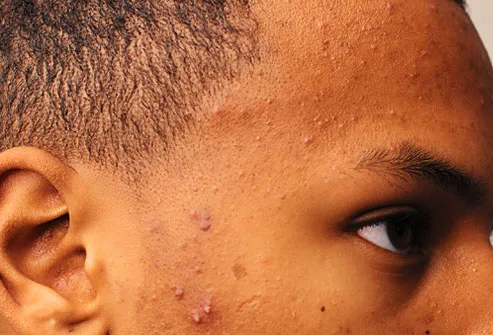
4. Acne Conglobata
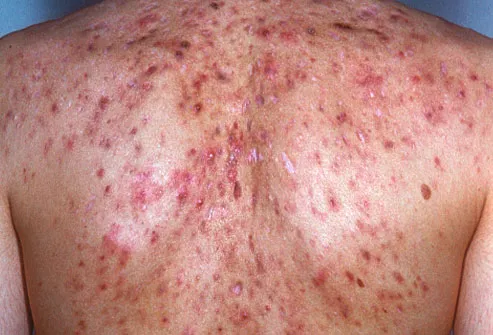
5. Acne mechanics
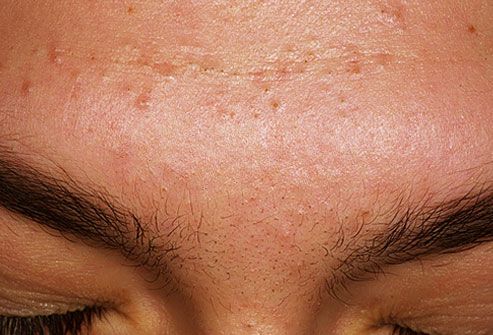
Short Summary
6. Severe Nodulocystic Acne
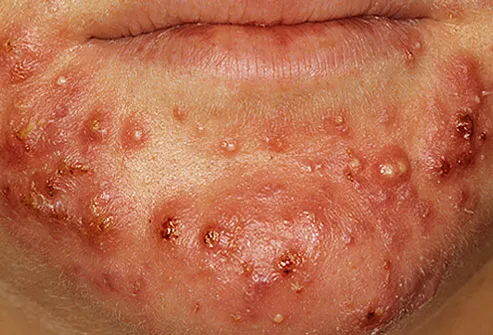

Conclusion
FAQs
Dr. Sandeep Bhasin
Dr. Sandeep Bhasin is a highly skilled cosmetic surgeon and the owner of Care Well Medical Centre in Delhi. With extensive expertise in cosmetic and plastic surgery, he is dedicated to providing exceptional care and transformative results to his patients. Dr. Sandeep Bhasin obtained his MBBS and MS in General Surgery from Aligarh Muslim University (AMU) and served as a consultant at Bhaktshreshtha Kamalakarpant Laxman Walawalkar Hospital, Diagnostic & Research Centre. Specializing in various procedures such as face-lifts, rhinoplasty, liposuction, breast augmentation, hair transplant and many others, Dr. Sandeep Bhasin is committed to enhancing his patients' natural beauty and self-confidence.